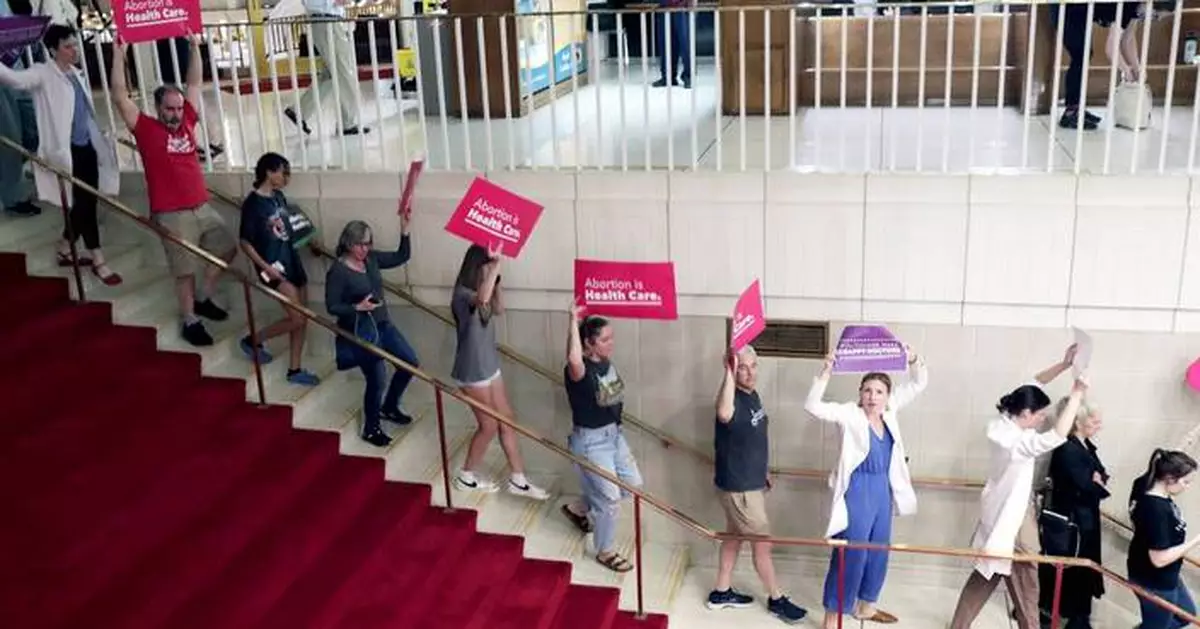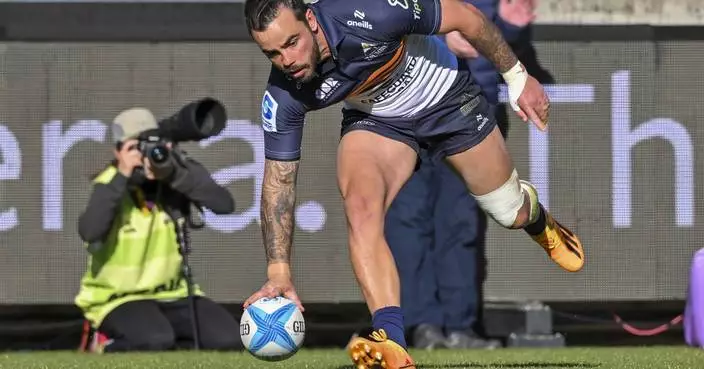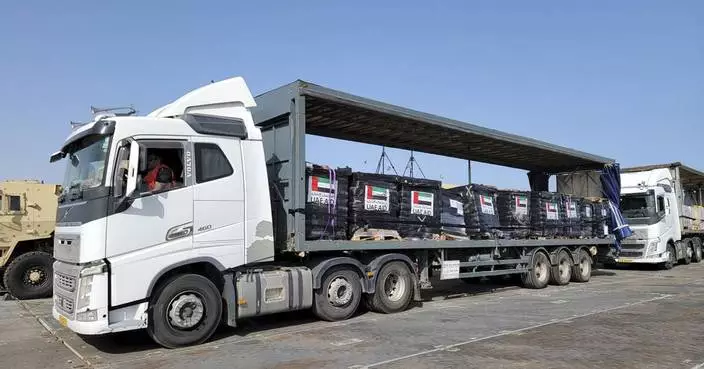RALEIGH, N.C. (AP) — When Florida enacted its six-week abortion ban last week, clinics in several other Southern and mid-Atlantic states sprang into action, knowing women would look to them for services no longer available where they live.
Health care providers in North Carolina, three states to the north, are rushing to expand availability and decrease wait times.
“We are already seeing appointments,” said Katherine Farris, chief medical officer of Planned Parenthood South Atlantic. “We have appointments on the books with patients who were unable to get in, in the last days of April in Florida.”
Their reaction is part of a growing trend in the United States: Since the Supreme Court overturned Roe v. Wade, spurring more than 20 states to adopt laws banning or severely limiting abortions, states with looser restrictions have taken steps to welcome women who want or need to end their pregnancies.
Since the court overturned Roe in June 2022, some Democratic-controlled states have made it easier for out-of-state women to obtain abortions. Several have adopted laws protecting in-state health care workers from being investigated for providing abortion to women from states with bans. Such measures have included allowing providers to prescribe abortion pills, the most common abortion method, via telehealth.
Officials in California, New Mexico, Oregon and other states have used taxpayer money to increase abortion access.
Florida recorded more than 84,000 abortions in 2023, a slight increase from 2022. As of April 1, the state reported approximately 14,700 abortions this year, potentially leaving a substantial number of women to consider going out of state.
“Patients will travel when they’re desperate to get an abortion,” said Mara Buchbinder, a social medicine professor at University of North Carolina at Chapel Hill. “We know that.”
At one point, Florida was a go-to state for women from other Southeastern states with restrictions, including neighboring Georgia and South Carolina, which both ban abortions around six weeks of gestation, before many women even know they are pregnant.
Last year, about 7,700 abortions in Florida were for out-of-state patients, according to state data.
But the state has steadily narrowed access. In anticipation of Roe being reversed, the Legislature passed a 15-week ban in April 2022 that took effect despite a court challenge. In 2023, it passed a six-week abortion ban that would take effect only if the earlier ban held up in court. The state Supreme Court upheld the ban last month, and the new law quickly went into effect.
A referendum in November asking voters to codify abortion rights in Florida’s constitution could reverse the ban. But at least until then, Florida abortion advocacy groups will still need to organize many out-of-state trips.
For women who are more than six weeks pregnant, South Florida is now the farthest from a legal provider of any highly populated area in the U.S. Subsequently, the average cost per abortion is expected to jump from $600 or $700 to as much as $1,800 or more, said Daniela Martins, a board member and caseworker team leader at the Women’s Emergency Network, a nonprofit organization that helps people in the region pay for abortion and other reproductive health care.
Martins said her group anticipates helping women get to Virginia and places even farther north, such as Maryland and Washington, D.C. She said it is committed to not turning away clients in need, though raising enough money to honor that commitment could be challenging.
“We’ve seen a lot of outpouring of support,” she said. “It’s nowhere near what we project we’ll need.”
Another group, The Brigid Alliance, which provides travel and support across the country for women seeking abortions after 15 weeks of pregnancy, is preparing for more needs in the coming months.
Serra Sippel, the group’s interim executive director, said the alliance is adding six new logistical coordinators, including four who speak Spanish, and is partnering with a clinic in Puerto Rico, an option particularly for Spanish-speaking people.
One of the largest patient influxes is anticipated in North Carolina, where, even before Florida's ban, 32% of abortions provided at the state's Planned Parenthood clinics were for out-of-state patients, Farris said.
But while it might be the most convenient place for Florida women given its geographical proximity, North Carolina is not without its own set of hurdles. The state’s 2023 law allows for abortions through 12 weeks of pregnancy, but requires two in-person visits to a provider 72 hours apart.
Those extra steps can turn a single-day procedure into a weeklong affair, said Justine Orlovsky-Schnitzler, engagement director for Carolina Abortion Fund, a nonprofit in North Carolina and South Carolina that operates a helpline to assist callers with abortion care.
Providers in North Carolina also fear the arrival of new patients will lengthen the wait time for an abortion, currently five to 20 days. Planned Parenthood South Atlantic, which serves North Carolina, South Carolina, Virginia and West Virginia, is trying to avoid that by rolling out seven additional days of abortion services and adjusting providers' schedules at North Carolina clinics to expand availability, Farris said.
“We are all willing to do the work,” she said. “Operationally, it is incredibly challenging, and I think it's important to remember that this is a chaotic system.”
Farris, who provides abortions in North Carolina, has to turn away patients who don't qualify under the state's law because they are more than 12 weeks along. She initially refers them to Virginia, which allows abortions until 24 weeks. If there are no appointments available, women can travel to Maryland, Washington or places farther north.
Carolina Abortion Fund has six staff members and a volunteer network, but working there could often feel like having two full-time jobs even before Florida’s ban, Orlovsky-Schnitzler said.
Volunteers have sometimes stayed up until midnight to help someone coordinate an emergency abortion, and there have been months in which the organization has received as many as 1,000 calls, she said. After Roe was overturned, calls rose by 400%.
“That’s not an exaggeration,” she said.
The center received 650 calls in April alone, according to data it provided.
The organization often runs out of money, but Orlovsky-Schnitzler said that doesn’t stop workers from answering every call to get people the help they're seeking.
Staff at A Preferred Women’s Health Center in North Carolina, with clinics in Charlotte and Raleigh, are fielding about 4,000 calls weekly, most from women in Southern states, Executive Director Calla Hales said.
Since Roe was overturned, about 70% of the clinics’ approximately 13,000 abortions each year have been with out-of-state patients, she said.
The center also operates two clinics in Georgia under the state's six-week ban. The clinics' operations there may give a preview of what’s to come in Florida, Hales said.
“As soon as they pee on a pregnancy stick, they’re running in,” she said.
Associated Press writer Amanda Seitz in Washington, D.C., contributed to this report.
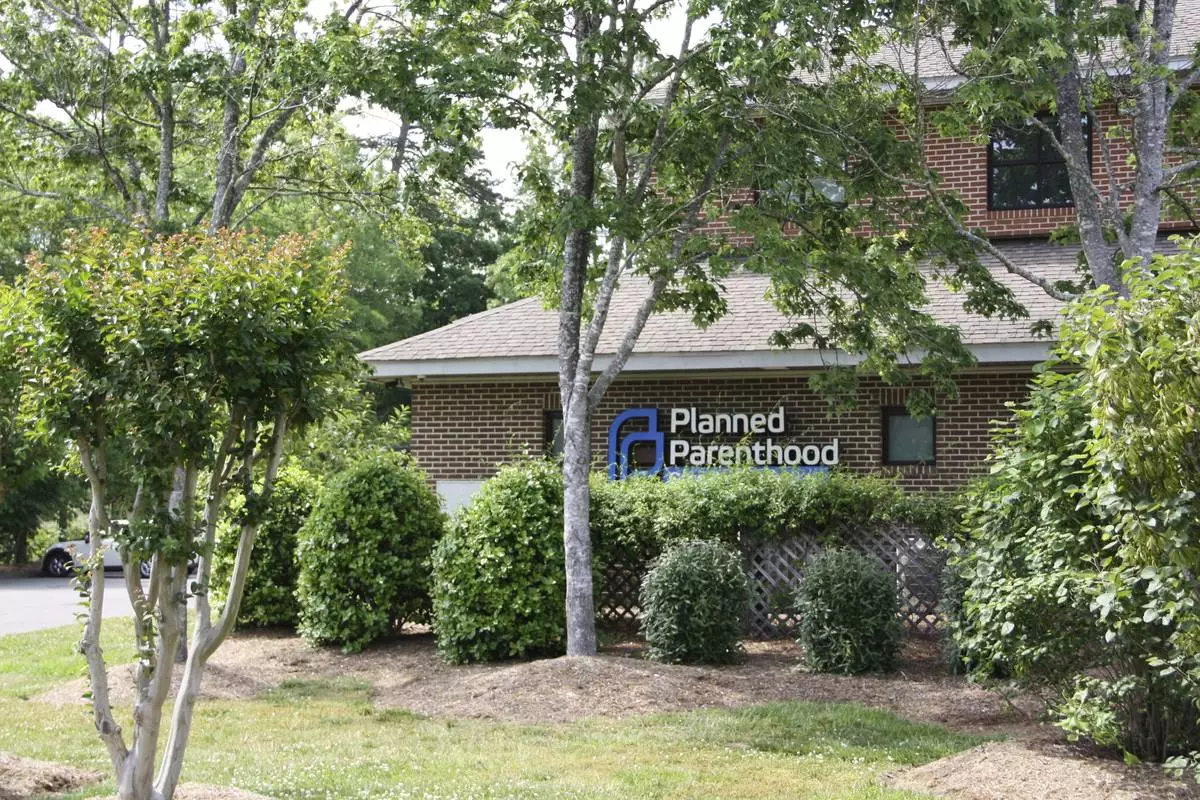
The Planned Parenthood Health Center located in Chapel Hill, N.C., is seen, Friday, May 3, 2024. The location provides abortion services, in addition to birth control and STD testing, according to its website. (AP Photo/Makiya Seminera)
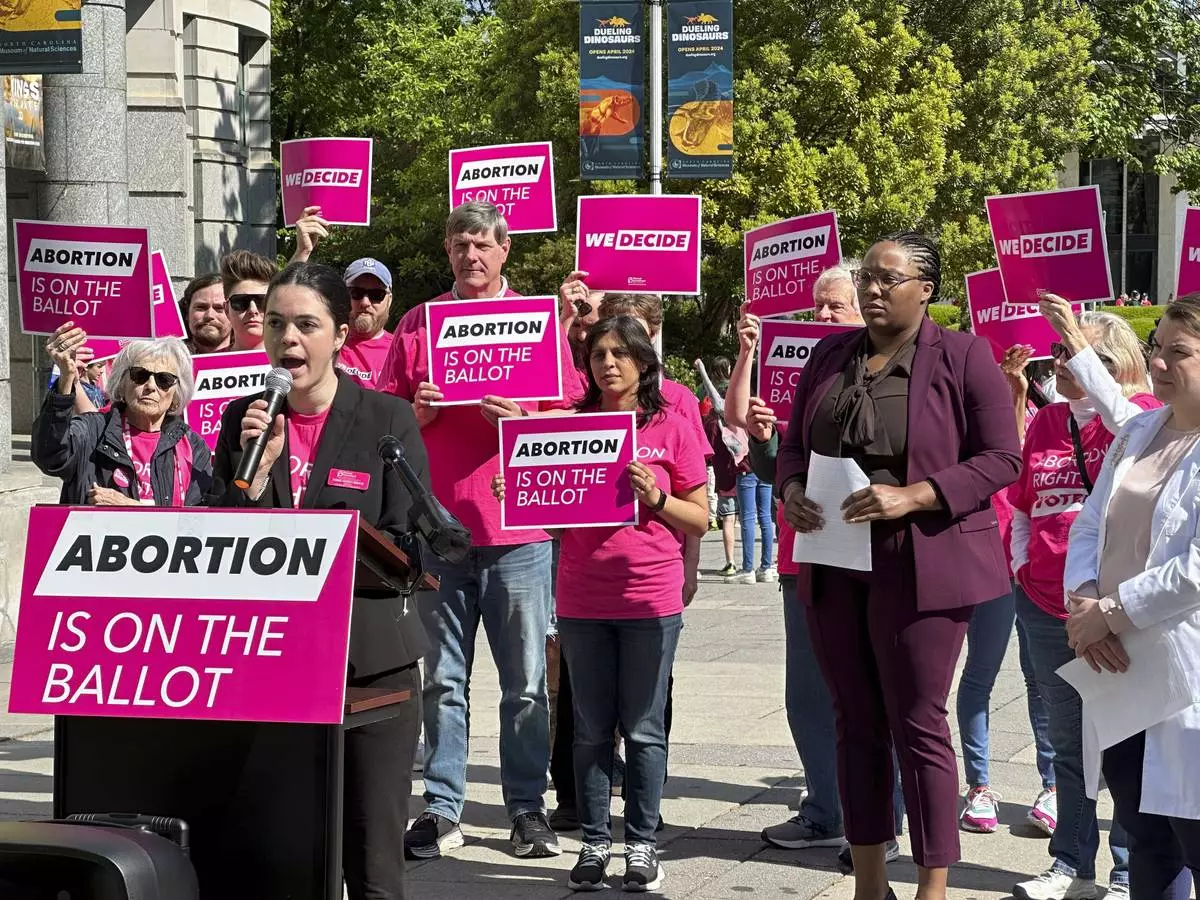
FILE - Planned Parenthood Votes South Atlantic organizer, Emma Horst-Martz, discusses the groups' canvassing goal of knocking at one million doors during a press conference at Bicentennial Plaza in Raleigh, N.C., Thursday, April 25, 2024. North Carolina abortion service providers prepare for a potential influx of people from Florida after the state's six-week abortion ban was enacted Wednesday, May 1, 2024. (AP Photo/Makiya Seminera, File)
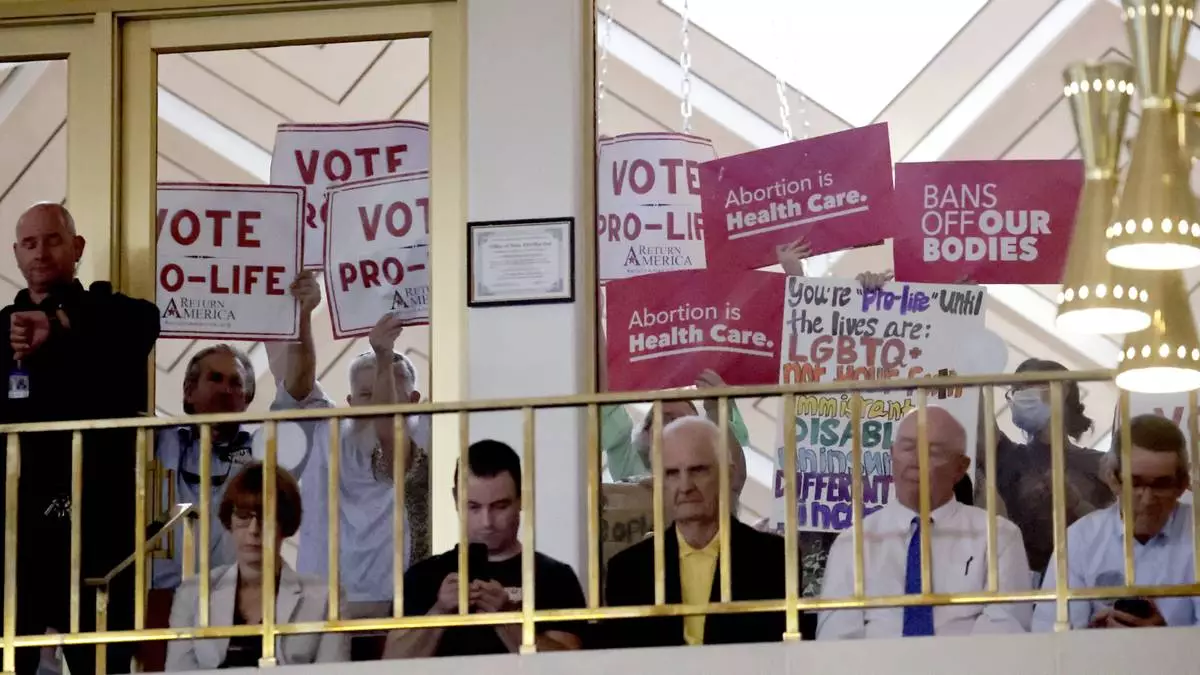
FILE - Protesters on both sides of the issue hold signs as North Carolina House members debate, Tuesday, May 16, 2023, in Raleigh, N.C. North Carolina abortion service providers prepare for a potential influx of people from Florida after the state's six-week abortion ban was enacted Wednesday, May 1, 2024. (AP Photo/Chris Seward, File)
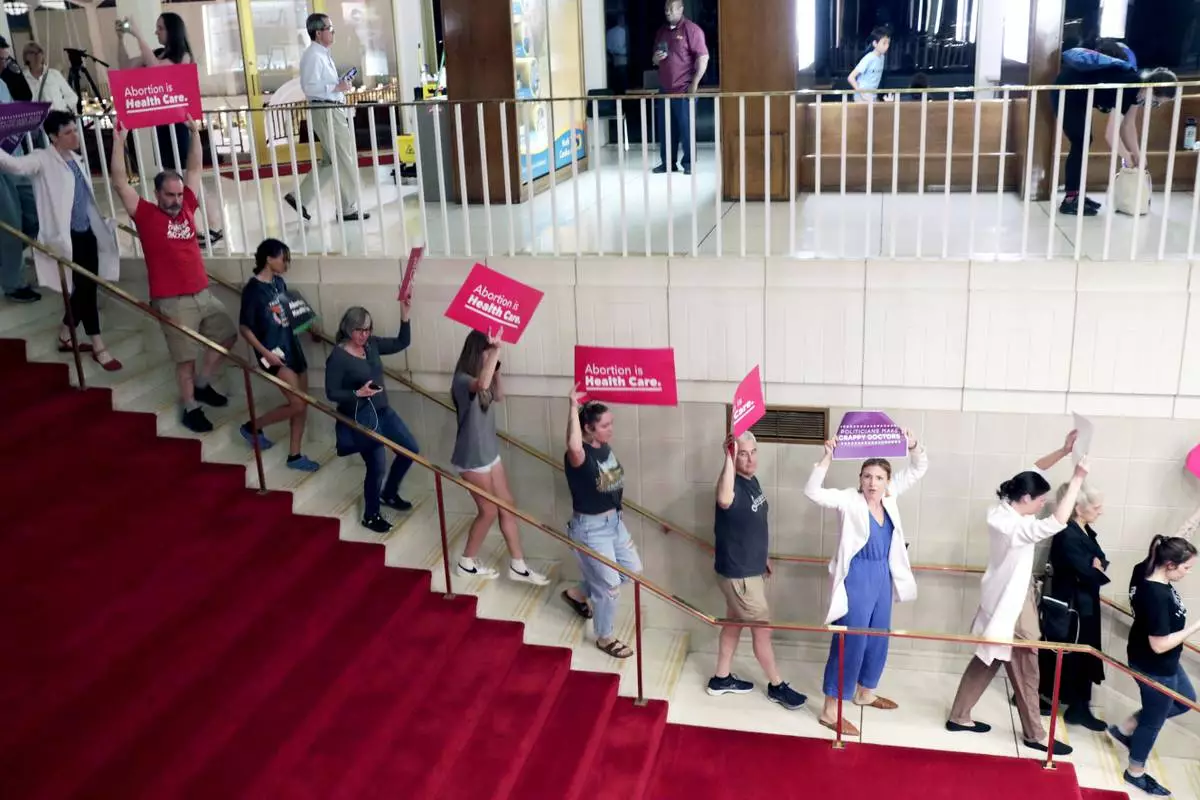
FILE - Abortion rights protesters are removed after becoming vocal, Tuesday, May 16, 2023, in Raleigh, N.C. North Carolina abortion service providers prepare for a potential influx of people from Florida after the state's six-week abortion ban was enacted Wednesday, May 1, 2024. (AP Photo/Chris Seward, File)


